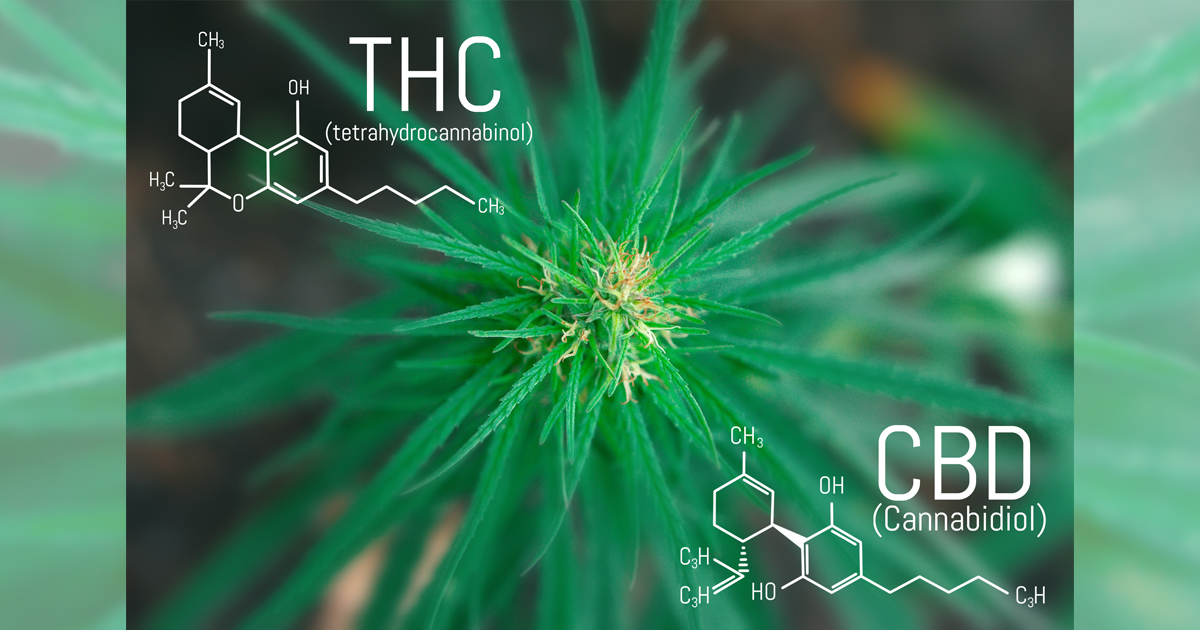
THC or CBD: Which Is for You?
Photo from Getty Images
Originally Posted On: https://kindmedsaz.com/blog/thc-or-cbd/
When faced with choosing the best cannabis product, people are usually left with a purple haze of questions and queries. Is cannabis safe? Will this product get me high? How does cannabis work within the body? Why is cannabis so beneficial?
CBD and THC are the two foremost cannabinoid compounds available in products from smokeable flower to edibles, topicals, and more. So, how do THC and CBD differ, and which one should you buy?
Differences Between THC and CBD
Maybe you are not familiar with how THC or CBD work, but by now in your life, you know ‘weed’ gets you high. That is true if you consume a cannabis product containing THC. However, CBD is another critical cannabinoid that doesn’t get you high. Like THC, it does contain many therapeutic benefits.
The interesting thing about CBD and THC is that chemically, they are nearly identical. They both contain the same number of atoms and have the same chemical formula. The difference is in the arrangement of the atoms and the shapes of the molecules. These different shapes interact uniquely with the brain and body’s endocannabinoid system, ECS. Their interactions with ECS receptors are why the body and mind have different reactions to CBD and THC—and why THC produces a high and CBD does not. [1]
THC and CBD can have a therapeutic effect on many ailments.
These ailments may include:[2]
- Stomach pain and nausea
- General pain throughout the body
- Depression and anxiety
- Queasiness
Usually, people will benefit from experimenting for a while to determine which cannabinoid is best for them. That is because the effects THC and CBD have on these different ailments can vary.
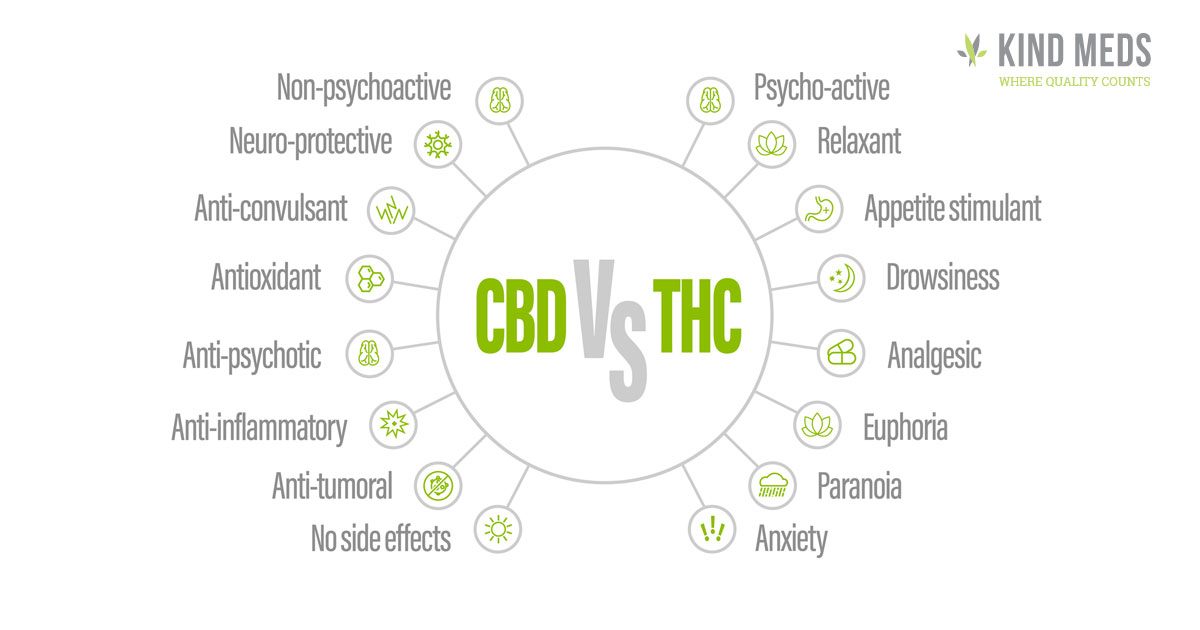 Photo from Getty Images
Photo from Getty Images
Both THC and CBD can be found in the flowering part of the cannabis plant, casually known as “bud.” The cannabis flower contains the resinous trichomes that produce most of the beneficial compounds in cannabis, including cannabinoids, flavonoids, and terpenes.
Medical Benefits of THC
THC is likely the best-known compound derived from the cannabis plant. It is the source of the psychoactive high users get when ingesting or smoking cannabis, as well as the root of much of the stigma against cannabis use. In fact, it used to be that marijuana was shunned by both the US government and society because it was thought of as nothing more than a drug that has no medicinal properties. Now, though, scientific research shows that cannabis has many medicinal qualities.
Some of the medical benefits THC can provide include:

Photo from Getty Images
Muscle Relaxation
THC may relieve muscle-related ailments such as cramps, sleep discomfort or nightmares, and stiff muscle tissues.
Relief of Nerve Pain
THC can reduce nerve discomfort by stopping the signals of pain along the nervous system highway. This reduces the connections between the brain and body. When it comes to CBD vs. THC for pain, it appears that THC reduces nerve pain in this way, while CBD reduces inflammation and other causes of pain.
Glaucoma
Glaucoma occurs when the nerves that connect the eye to the brain are damaged. Several studies show THC reduces the pressure that causes nerve damage.
Parkinson’s Disease Relief
Evidence shows that THC relieves symptoms brought on by Parkinson’s disease. Patients may experience relief from pain, anxiety, insomnia, and more.
Medical Benefits of CBD
Since CBD does not produce a psychoactive high, many people opt for it when they are looking for the health benefits of cannabis while staying sober.
CBD has many therapeutic capabilities, including: [3]
Seizure Reduction
This is, perhaps, CBD’s best-known benefit. Trials have shown that CBD helps reduce the frequency of seizures in not only humans, but also some animals as well.
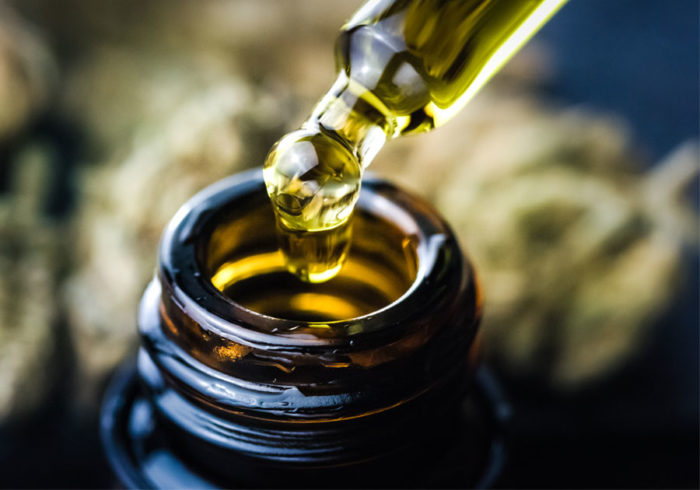
Photo from Getty Images
Inflammation Reduction
CBD is a good option when it comes to reducing inflammation. It is a more organic form of pain relief than other synthetic pain relievers such as Tylenol or Advil. Unlike these medications, CBD will not cause damage to the kidneys over time.
Anxiety and Depression Relief
There have been many studies that have shown how cannabis can relieve anxiety and depression, as well as help people who are experiencing panic attacks. When it comes to CBD vs. THC for anxiety, both can potentially provide relief. The difference is that CBD can decrease anxiety, even in higher doses. In low doses, THC can provide relief, but higher doses can potentially increase anxiety for some.
Migraine Relief
Many cannabis users have reported that CBD relieves pain induced by migraines. This effect was seen specifically from the application of CBD oil.
Finding the Right Mix of CBD and THC
As you can see, both THC and CBD have therapeutic potential—but what if you didn’t have to choose between the two? In fact, several studies indicate that patients can achieve better results when THC and CBD are taken at the same time. A study published in the British Journal of Pharmacology stated that when patients consume CBD and THC simultaneously, there is a greater chance of healing ailments such as depression, infection, chronic body pain, and many others via the entourage effect. [4]
When used in the right ratio, the psychoactive effects of THC can be moderated by CBD. [5] This can help mitigate negative effects of THC like extreme anxiety, potentially benefiting many cannabis users. If this sounds good to you, eventually, you’ll come to a situation where you are trying to find the right balance of THC and CBD. This can be tricky because when it comes to THC, everyone has a different amount they can handle. Some people can take one dose and find that sweet spot right away, while others may need to smoke a whole bowl. Considering this, the only way to find the right CBD-to-THC ratio is to experiment and find the right balance for you.
What Is the Entourage Effect?
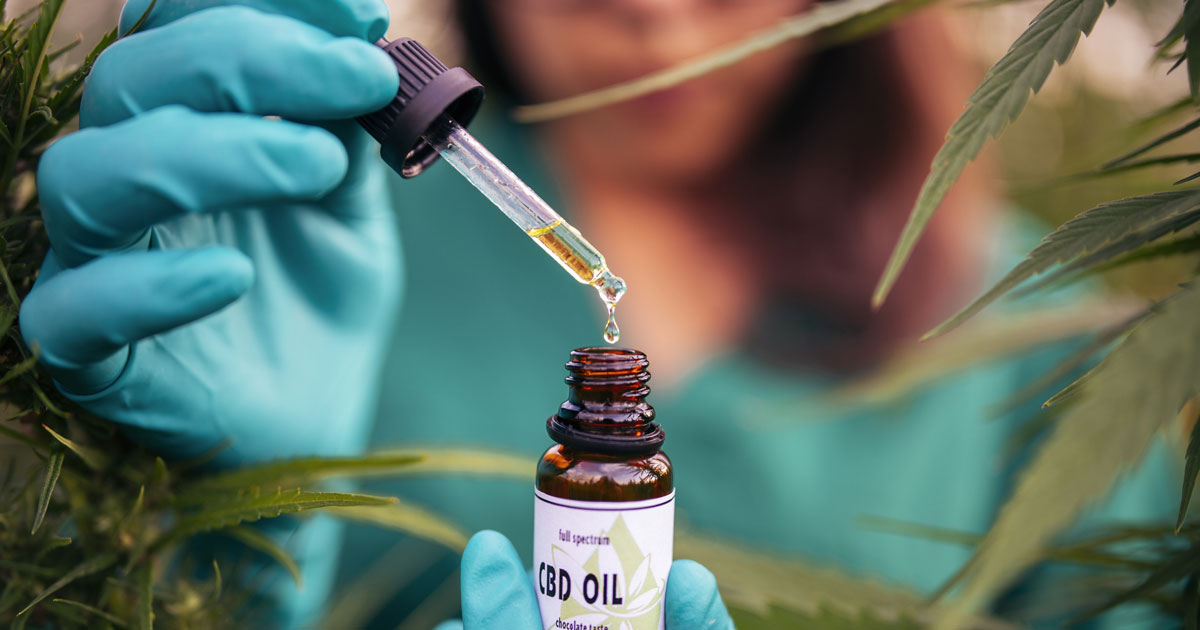 Photo from Getty Images
Photo from Getty Images
The greatest benefit of using THC and CBD together in a full-spectrum cannabis product is your ability to access the entourage effect. When you smoke, inhale, or otherwise ingest full-spectrum cannabis, you gain access to a number of cannabis compounds in addition to cannabinoids like THC and CBD. For example, cannabinol (CBN) and cannabigerol (CBG), are other cannabinoids that may have interesting therapeutic benefits when ingested alongside THC and CBD. Flavonoids, another type of plant compound, are found in abundance in cannabis, and exhibit antioxidant benefits that may prevent the onset of diabetes, heart disease, and other illnesses caused by oxidative damage.
Terpenes are another crucial class of plant compounds, and cannabis plants boast hundreds of them. The best-known terpenes are responsible for the unique flavor and scent profiles of your favorite cannabis varieties. They not only have their own effects, including positive influences on sleep, immunity, and more, but they also help modulate the way cannabinoids interact with the body. This synergy between the body and all the helpful compounds contained in cannabis is known as the entourage effect, and it can be achieved by choosing a full-spectrum cannabis product that is right for your needs. [6]
Choosing the Right Cannabis Product
With so many cannabis products out there, it can be difficult to decide on the product that is right for your physical and mental well-being. With all the information coming out about the benefits of combining THC and CBD, and the entourage effect, many people are searching for cannabis products that have the right balance of many cannabis compounds. It is worth noting that if you want to use medical cannabis, consulting your physician or a cannabis expert should be your first step.
With so many choices out there today, one is faced with not only the choice of whether to focus on CBD or THC, but also the form in which you want to take cannabis. There is no right answer, and each person will be partial to different cannabis products and methods of consumption. These preferences are normally formed through the mental and physical variables surrounding one’s life and can only be found through experimentation.
Some of the most typical ways to ingest cannabis compounds include but are not limited to:
Smoking Flower
 Photo from Getty Images
Photo from Getty Images
This is the most common way to ingest marijuana and can be done through pre-rolled joints, pipes, or water bongs. While smoking is a quick way to get CBD and THC into your bloodstream, it is worth noting that it may feel harsh on the lungs.
Vaping
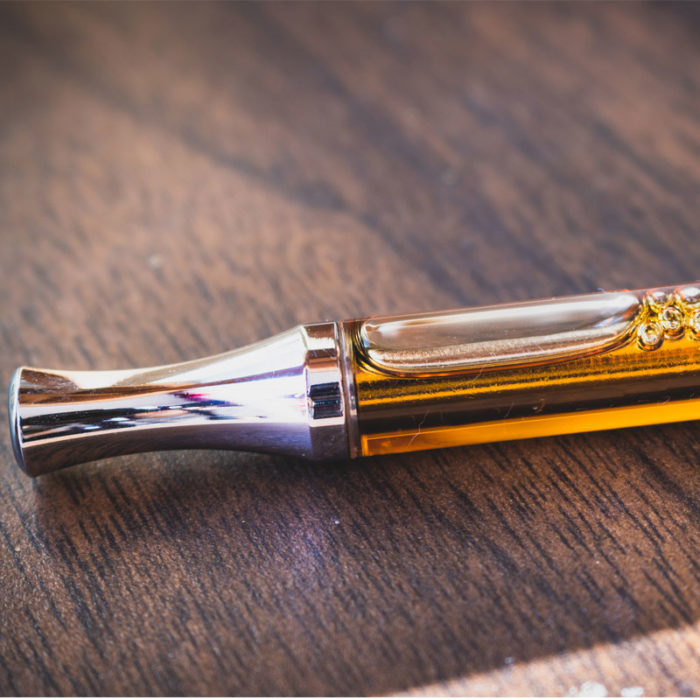 Photo from Getty Images
Photo from Getty Images
Today, a wide variety of cannabis strains are available as oils pre-loaded in vape cartridges. Simply choose the one that is best for you, attach the cartridge to a battery unit, and you can enjoy your favorite strain on-demand.
Edible Products
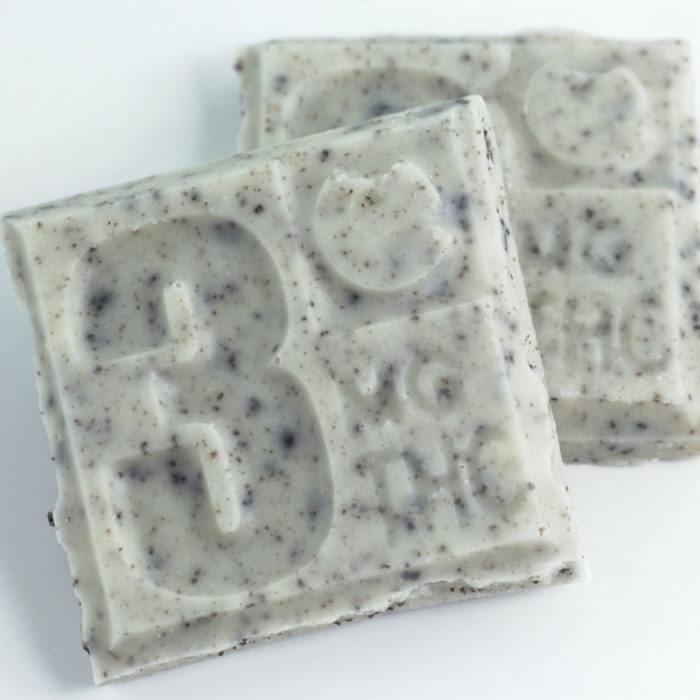 Photo from Getty Images
Photo from Getty Images
Edibles provide a fun, accessible way to ingest cannabis products. From gummy bears to brownies, this is the easiest way to get your cannabis fix. There are even cannabis cooking oils so you can enjoy all the benefits of cannabis with a delicious meal.
Topicals
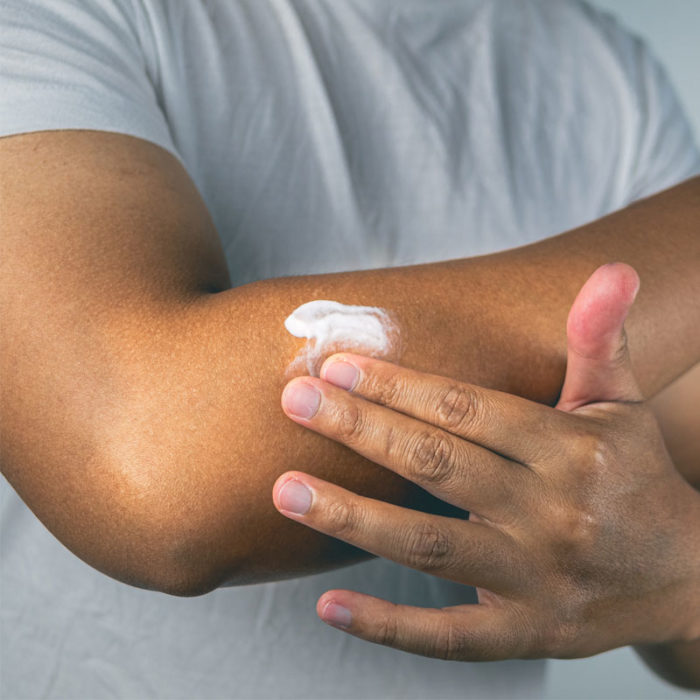 Photo from Getty Images
Photo from Getty Images
These come in a wide assortment of creams and massage oils and are another convenient option for topical cannabis use. Sophisticated cannabis transdermal patches can help you deliver THC and CBD to your bloodstream without the need to ingest it.
Concentrates
 Photo from Getty Images
Photo from Getty Images
There are many types of concentrates out on the market. Waxes or dabs are the common types that are smoked out of a rig similar to a water bong. Some of the oil concentrates can also be consumed with food or beverages.
THC or CBD?
While the differences between the two compounds are clear, when it comes to choosing a cannabis compound for your needs, there is no single correct answer. Whether cannabidiol (CBD), tetrahydrocannabinol (THC), or a combination of the two is best for you usually depends on a multitude of factors affecting your life.
